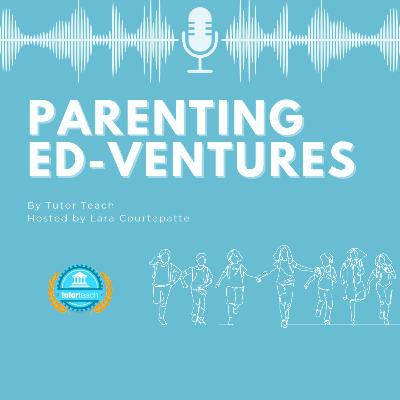“This Isn’t How I Learned Math!”: Turning Homework Battles into Wins
Description
Today, Lara sits down with Dr. Brent Davis, a professor of mathematics education whose career bridges real classrooms and groundbreaking research. Brent began as a middle school math teacher before completing his PhD at the University of Alberta. Since then, he has served as Canada Research Chair in Mathematics Education at the University of Alberta, the David Robitaille Chair at UBC, and is now Distinguished Research Chair & Werklund Research Professor at the University of Calgary. University of Alberta Journals+2Faculty of Education+2
In this episode, Brent reflects on what those early classroom years taught him, why math education keeps evolving, and how approaches like inquiry-based learning aim to move students from memorizing steps to developing genuine understanding. We talk about why parents can feel “left behind” when methods shift, how to support a child who says they’re “not a math person,” and what to try at home when homework stalls. Brent also shares insights from projects at the University of Calgary—like Math Minds—that study how students learn mathematics and how teachers can better support that learning. Werklund School of Education+1
If you’ve ever looked at your child’s homework and thought, “This is nothing like what I learned!”—or if your kid breezes through some topics but hits a wall with others—this conversation will help you see today’s math classroom (and your child’s potential) in a new light. You’ll leave with practical language, parent-friendly strategies, and a calmer way to coach confidence, curiosity, and persistence.
In today’s episode, we cover:
Why math “changes”: from procedures first to sense-making and flexible thinking—what that looks like at home.
Inquiry without chaos: how questions, patterns, and multiple strategies help kids understand why methods work.
“Math person” myths: what research says about confidence, identity, and productive struggle.
Homework roadblocks: simple prompts and routines that restart thinking (no reteaching the whole unit).
Talking with teachers: respectful ways to ask about goals, assessment, and how to help—without stepping on toes.
Looking ahead: habits that matter most for secondary math and beyond (reasoning, modeling, and reflection).
Meet our guest:
Dr. Brent Davis is Distinguished Research Chair & Werklund Research Professor in the Werklund School of Education at the University of Calgary. His work focuses on the educational relevance of cognitive and complexity sciences, mathematics teacher knowledge, and structures that support deep mathematical learning. He previously held the Canada Research Chair in Mathematics Education (University of Alberta) and the David Robitaille Chair in Mathematics Education (UBC). UCalgary Profiles+2University of Alberta Journals+2
Parent takeaways you can use tonight:
Swap “What’s the answer?” for “What changed from line to line?” to make thinking visible.
Ask “Show me two ways”—it builds flexibility without undermining the method taught in class.
Use micro-models (draw a quick bar, number line, or array) before reaching for a calculator.
End homework with a 30-second reflection: What was hard? What helped? What’s your question for the teacher?
Normalize struggle: errors = information you and the teacher can use.
Resources & links:
Dr. Brent Davis – UCalgary profile: https://profiles.ucalgary.ca/brent-davis UCalgary Profiles
Werklund School – “Beyond Math Wars” (research focus): https://werklund.ucalgary.ca/beyond-math-wars Werklund School of Education
Math Minds (UCalgary news feature): https://ucalgary.ca/news/math-minds-it-all-adds University of Calgary in Alberta
Past roles & bios (overview): https://notes.math.ca/en/article/2024-cms-mathed-online-meeting/ CMS Notes
Follow Parenting Ed-Ventures on Instagram: https://www.instagram.com/parentingedventurespod/
Learn more about Tutor Teach: https://tutorteach.ca/





